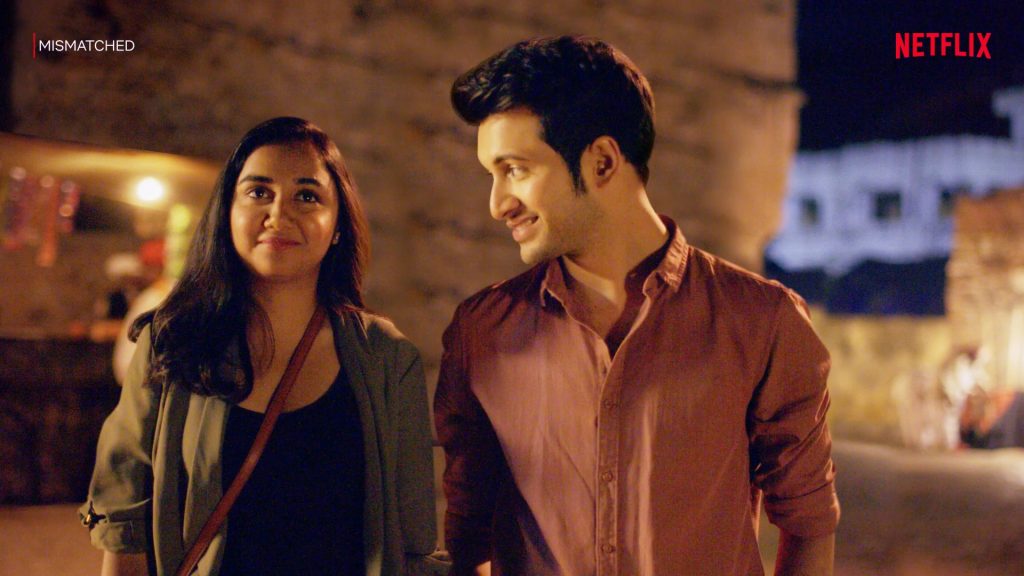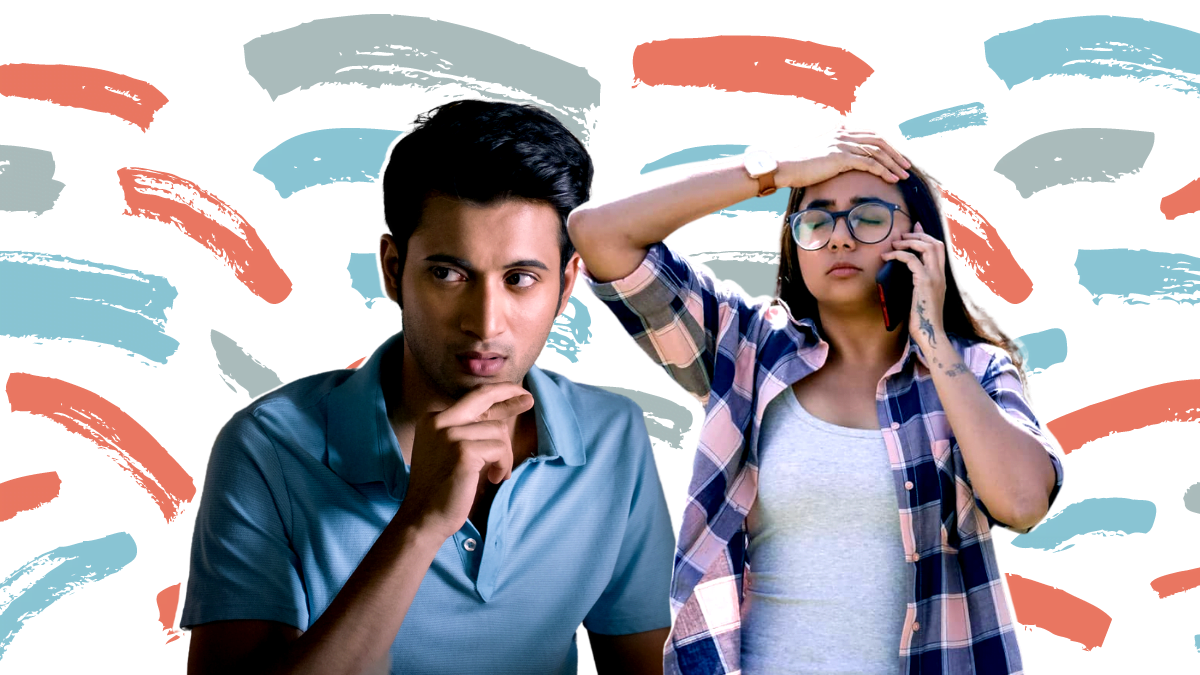Netflix India’s latest foray into the rom-com universe comes at a time when we’re craving the warm embrace of familiarity. Set against conversations about first love, femininity, beauty standards, queerness, marriage, career, ambition (and every other buzzword the writers room could incorporate), Mismatched creates an air of nostalgia with hints of wokeness that could entrap anyone looking for a comfort watch in its web of lies about reality.
The six-episode series follows smalltown Dimple (played by YouTube sensation Prajakta Koli) and loverboy Rishi (played by India’s own teenage heartthrob Rohit Saraf) at a summer coding program. For both, it is going to be ‘the summer that changes the course of their lives.’ However, much like the title of the show reveals, their ambitions are mismatched. Dimple doesn’t have time for love—she’s focusing on her dream to pitch a billion-dollar app idea to Silicon Valley. And Rishi just wants to get married, really.
Not to forget, the clique of supporting characters reminiscent of Never Have I Ever, Sex Education or even Freaks and Geeks. You’ve got the purple-haired roommate, the closeted gay best friend (whose trauma is later exploited), the selfie-obsessed Instagrammer, the token NRI, and the pinnacle of toxic masculinity.
Sounds familiar?
Mismatched’s inspirations are evident. The show is trying to be the classic teenage love story, unpacking the supposed individualism of a group of confused teenagers that are focused on love, alcohol, sex, and app development. And don’t get me wrong, I love a cheesy love story. I loved Rishi’s filmy pickup lines and the classic coming-of-age city exploration montage complete with an original Prateek Kuhad soundtrack for the vibes.
The six-episode series follows smalltown Dimple (played by YouTube sensation Prajakta Koli) and loverboy Rishi (played by India’s own teenage heartthrob Rohit Saraf) at a summer coding program.
One thing the show gets right is the atmosphere of sweetness it creates around the central characters’ love story. Untouched by evils and judgement, the relationship is tender, kind, and consensual. It is the sweet love story a teenage Indian audience deserves to see represented. The chemistry between Koli’s vulnerable sweetness and Saraf’s boyish charm is undeniable. While the characters are painfully privileged and occasionally overdramatic, Dimple and Rishi laughing in the rain and sharing a kiss under fairy lights may be the comfort you need after the year we’ve had.
But there was something about the familiarity and ostentatious wholesomeness that feels incomplete.
In trying to be relatable to the privileged Indian teen, Mismatched tokenises its characters and punishes their arcs with stereotypes that are painfully overdone. While the intention in broaching topics like vanity in the age of social media, pressure in teenage relationships, privilege, and sexuality is inspirational, the surface-level treatment of these topics in comparison to the love story was disheartening. The ten-dialogues of individual struggles as buzzwords feels dismissive, to say the least.

This superficial writing reaches its height in the haphazard, painfully rushed, trainwreck season finale that leaves you confused in more ways than one. After having brushed over topics introduced in the first and subsequent episodes, the finale is a concoction of personal struggles set against a gaming challenge.
Metaphorically supposed to represent her ability to succeed, Dimple’s celebrations reach a halt when her world comes crashing down and the protagonist is held accountable for her actions. Poulomi Das said it best, “Every conceivable conflict is crammed in the last 15 minutes of the episode for no reason other than it can be. There is a broken friendship, a terse confrontation, an unfortunate leak, an unlikely win, an unofficial breakup, and a new beginning.”
Mismatched’s inspirations are evident. The show is trying to be the classic teenage love story, unpacking the supposed individualism of a group of confused teenagers that are focused on love, alcohol, sex, and app development.
Also read: Netflix’s ‘Stateless’ Proves Its Relevance To The Historical Protests Against CAA
Up till this final episode, the show’s treatment of homosexuality was surface level at best and honestly, I wish it had stayed that way. Broaching on subjects of gay trauma, the show exploited Namrata’s pain as a plot point for Rishi’s character arc, allowing him to be branded as the friend that was willing to sacrifice a childhood friendship in pursuit of romance.
It left me thinking, when will writers’ rooms learn to let their queer characters be unapologetically themselves? Why are queer characters always considered as character plots for the heterosexual protagonist? I am tired of rejoicing in representation that is subsequently used to harsh pain. If the show has been so comfortable brushing over reality, why was it this character whose trauma was easy to attack? Much to think about.
A parting note to Netflix India, to writers rooms, and to young-adult story producers everywhere: can we pleaaaaaase be done with non-teenagers playing teenagers? Big glasses, purple hair, and don’t make them look seventeen, trust me on this one. Keep it going and we’re going to end up at Riverdale territory and you do not want that.
To paraphrase my mother, Mismatched isn’t meant to be the show you think about too much.
And it wouldn’t be if it wasn’t for the disaster of a season finale that left me wanting more (i.e. an explanation, really). If you’re looking for a good show, keep looking. But if you’re looking for a few sweet moments and some background noise, this is the binge you need.
Also read: Netflix’s ‘The Queen’s Gambit’ Checkmates Gender Tropes Of Our Society
Generously, 3 stars.
Featured Image Source: Netflix
About the author(s)
Aastha Jani was born in Surat, Gujarat and raised in Dubai, UAE. She is passionate about intersectional representation in popular media, dismantling gender roles, and confronting internalised misogyny. Aastha can usually be found binge-watching TV, baking brownies, or chasing a sunset.




